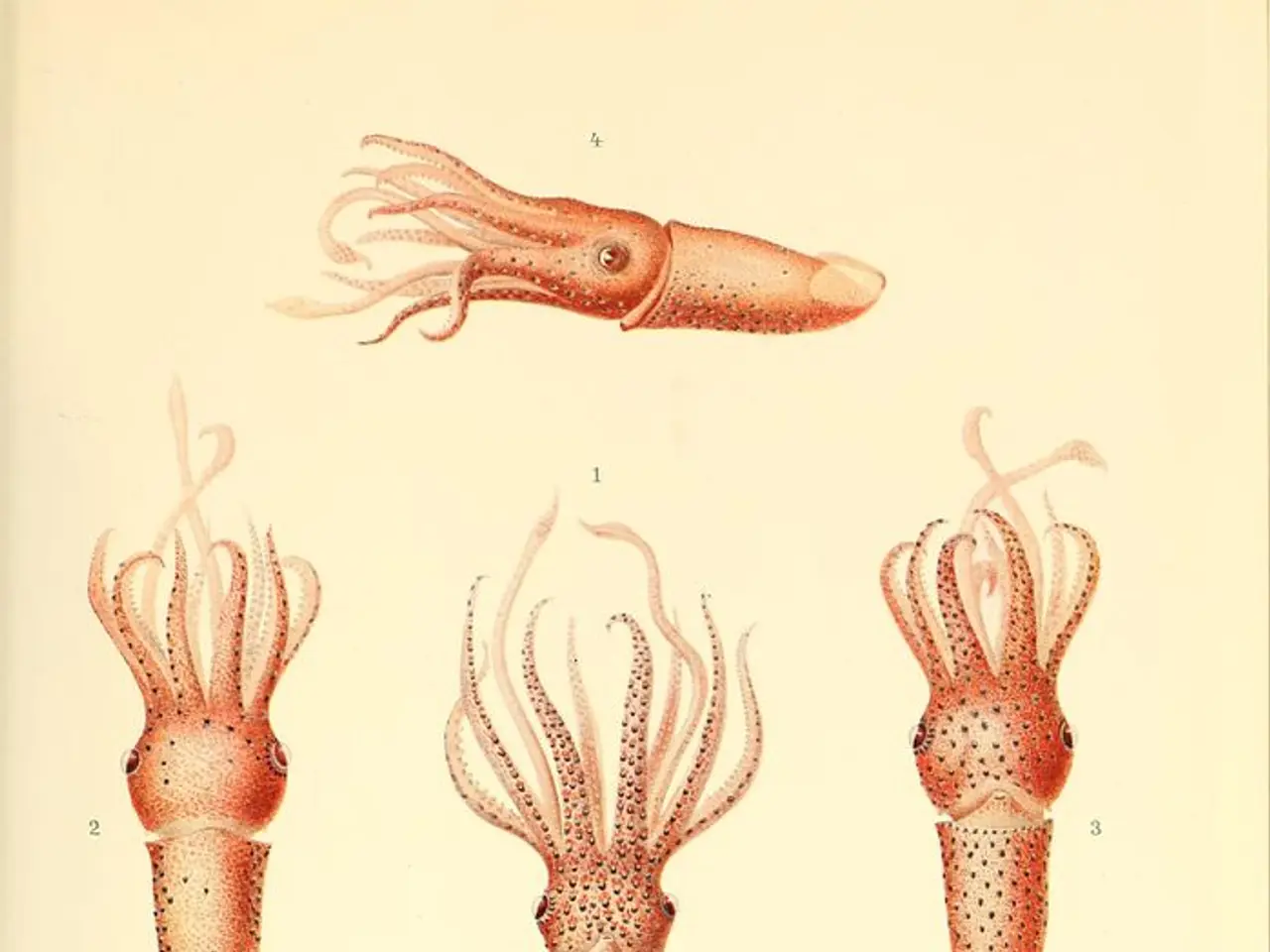Octopus Brains Unveiled: Investigating Problem-Solving Capabilities and Emotional Acumen
Unraveling the Enigma of Octopus Intelligence
In the vast and mysterious ocean depths, one creature stands out as a testament to the wonders of nature: the octopus. These enigmatic cephalopods have captured the imagination of scientists and the public alike, due in no small part to their remarkable intelligence.
The central brain of an octopus is highly complex, a fact that is all the more astounding given their relatively short lifespan. Yet, it is not just their brains that are intriguing; their arms, too, are capable of operating autonomously, processing information and executing tasks without direct input from the brain in the head.
This decentralized nervous system, with approximately two-thirds of their neurons residing in their arms, allows for independent control. This unique arrangement enables octopuses to manipulate their environment with cunning strategies, such as camouflaging to evade predators.
Studies suggest that octopuses exhibit behaviours indicative of emotional states, such as changing colour and texture to reflect moods. This emotional capacity, further fuelled by stories of octopuses recognizing and reacting differently to individual handlers, challenges anthropocentric views and fosters a greater appreciation for diverse expressions of cognitive capabilities.
The study of octopus cognition encourages a reconsideration of our understanding of intelligence and consciousness, particularly in relation to invertebrates. Research has shown that octopuses learn through observation, a trait rare in invertebrates. Recent studies also suggest rudimentary forms of communication and social understanding in octopuses, with some species displaying social behaviours, including communal living, interactions through gestures, and colour changes.
The intelligence of octopuses might be evolutionary, rooted in their solitary nature and the absence of protective shells. Their problem-solving skills are remarkable, often comparable to vertebrates. Octopuses can navigate mazes, open jars to obtain food, and engage in play-like behaviours.
The hidden minds of octopuses offer a glimpse into a world of intelligence that defies simple categorization. Through ongoing exploration and ethical consideration, we may continue to unravel the rich tapestry of life beneath the waves. Understanding octopuses enriches our perception of the animal kingdom and highlights the complexity underlying cognitive and emotional evolution across species.
As we delve deeper into the enigmatic brains of octopuses, insights could revolutionize robotic surgery techniques, such as heart surgery. The research, sponsored by the AI and robotics industry, aims to understand why octopuses develop such intelligence so quickly despite a short lifespan and how they can move eight arms autonomously without using their eyes.
Acknowledging the intellectual and emotional lives of octopuses encourages more ethical considerations regarding their treatment in research, captivity, and the wild. As we continue to learn from these fascinating creatures, we are reminded of the importance of empathy and respect for all forms of life. The captivating world of octopuses serves as a reminder of the interconnectedness of all living beings and the endless possibilities that await us in the depths of the ocean.
Read also:
- Dolphins Identify Each Other Using Distinctive Signals and Establish Mafia-Like Social Structures
- Administration of Trump reduced funding for mental health programs, causing worry among experts
- Notable individuals partner with Global Sumud Flotilla en route to Gaza
- In the intersection of historic and modern Berlin, Urban-Eck emerges as Kreuzberg's final authentic pub remaining.






